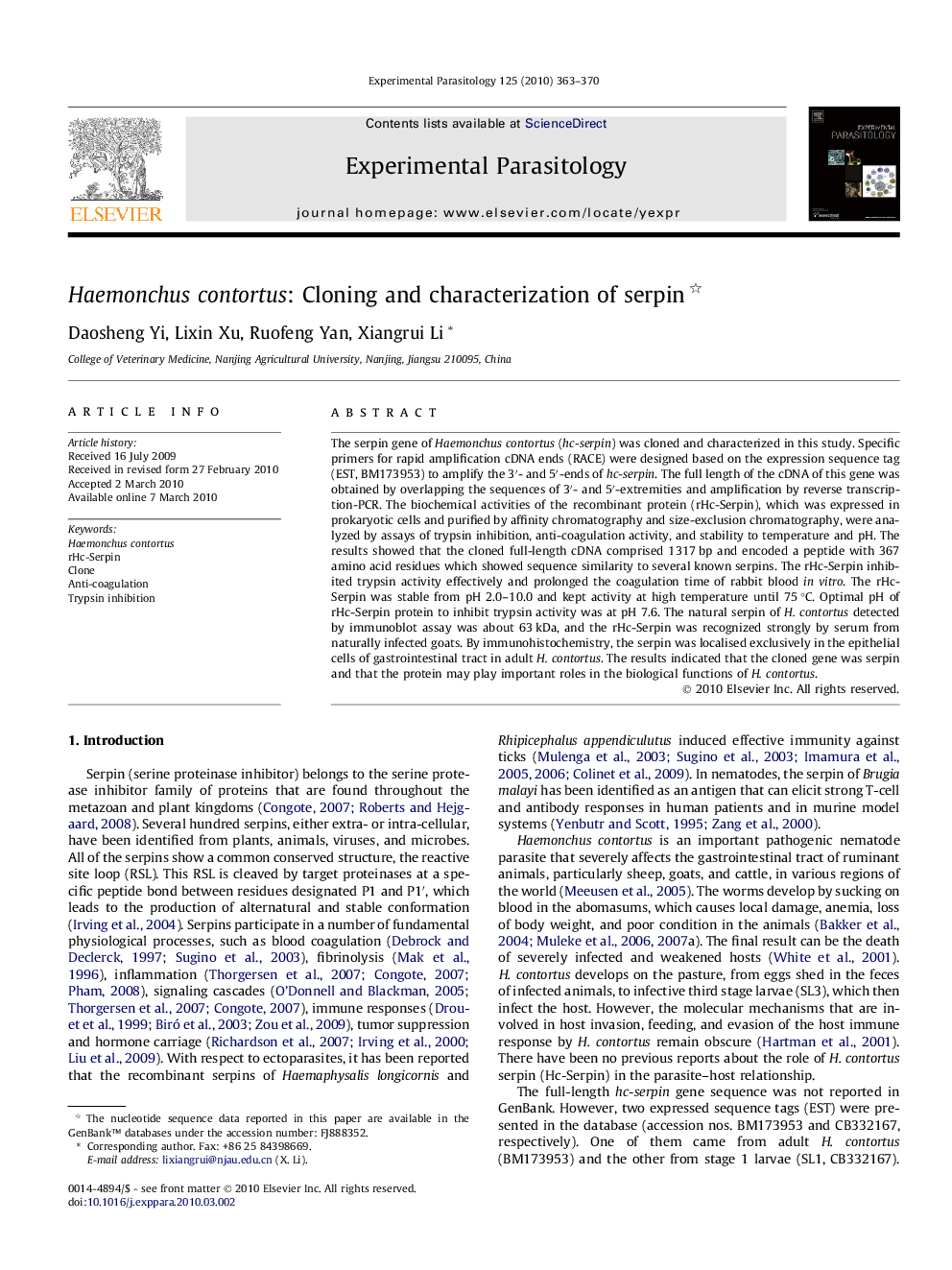| Article ID | Journal | Published Year | Pages | File Type |
|---|---|---|---|---|
| 4371341 | Experimental Parasitology | 2010 | 8 Pages |
The serpin gene of Haemonchus contortus (hc-serpin) was cloned and characterized in this study. Specific primers for rapid amplification cDNA ends (RACE) were designed based on the expression sequence tag (EST, BM173953) to amplify the 3′- and 5′-ends of hc-serpin. The full length of the cDNA of this gene was obtained by overlapping the sequences of 3′- and 5′-extremities and amplification by reverse transcription-PCR. The biochemical activities of the recombinant protein (rHc-Serpin), which was expressed in prokaryotic cells and purified by affinity chromatography and size-exclusion chromatography, were analyzed by assays of trypsin inhibition, anti-coagulation activity, and stability to temperature and pH. The results showed that the cloned full-length cDNA comprised 1317 bp and encoded a peptide with 367 amino acid residues which showed sequence similarity to several known serpins. The rHc-Serpin inhibited trypsin activity effectively and prolonged the coagulation time of rabbit blood in vitro. The rHc-Serpin was stable from pH 2.0–10.0 and kept activity at high temperature until 75 °C. Optimal pH of rHc-Serpin protein to inhibit trypsin activity was at pH 7.6. The natural serpin of H. contortus detected by immunoblot assay was about 63 kDa, and the rHc-Serpin was recognized strongly by serum from naturally infected goats. By immunohistochemistry, the serpin was localised exclusively in the epithelial cells of gastrointestinal tract in adult H. contortus. The results indicated that the cloned gene was serpin and that the protein may play important roles in the biological functions of H. contortus.
